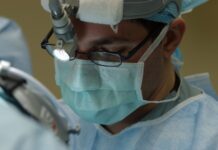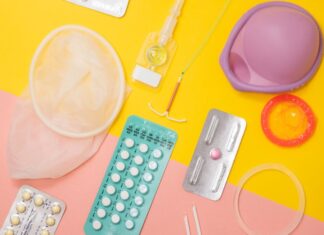Essure is a device for sterilizing women. It is a metal coil that, when placed in each fallopian tube, causes fibrosis and obstruction. Essure was designed as an alternative to tubal ligation. Can you get pregnant after Essure?
Although designed for life, it has been approved based on short-term safety testing. Of the 745 women with implants in the original pre-marketing studies, only 92% were controlled within one year and 25% for two years for safety results. A 2009 review concluded that Essure appears safe and effective on the basis of short-term studies, that it is less invasive and may be cheaper than laparoscopic bilateral tubal ligation. About 750,000 women received the device.
Preliminary tests showed that about 4% of people had ovarian perforation, expulsion or incorrect placement of the device at the time of surgery. Since 2013, the product is controversial, and thousands of women are repeating serious side effects leading to surgical extraction. The rate of repeat surgery in the first year was ten times higher for Essure than for fallopian tube ligation. The Erin Brockovich campaign runs a website where women can share their stories after the procedure. As of 2015. According to data from the US Food and Drug Administration (FDA) and other studies, many adverse events occurred, including coil perforations, inevitable pain and bleeding leading to hysterectomy, possible deaths associated with the device, and hundreds of unintentional pregnancies.
According to their calculations, 96 out of 1000 women who have undergone hysteroscopic sterilization or Essure will become pregnant in 10 years. For laparoscopic tubal ligation, the risk of pregnancy was significantly lower: between 24 and 30 pregnancies per 1,000 women.
The study, published in the journal Contraception, is the first to compare the effectiveness of two main choices offered to women who are looking for a permanent form of birth control. Every year, approximately 345,000 American women undergo sterilization procedures, with Essure becoming an increasingly popular choice because it does not require a surgical incision.

Adverse effects
Serious side effects may include persistent pain, uterine and fallopian tube perforation, and tubular migration to the pelvis or abdomen. Others are:
- Punctured uterine walls
- Pregnancy and an increased risk of ectopic pregnancy
- Pain, cramps, vaginal bleeding, changes
- Nausea, vomiting
- Vasovagal reaction (syncope)
- Allergic reaction to materials
- Increased allergic reaction to other allergens
- Heavy metal toxicity
- Itchy, raised rash
- Brain eclipse
- Symptoms of autoimmune disease
- Weight gain
- Anxiety / depression, suicidal thoughts
- Hair loss
- Numbness in the limbs, back and joint pain














